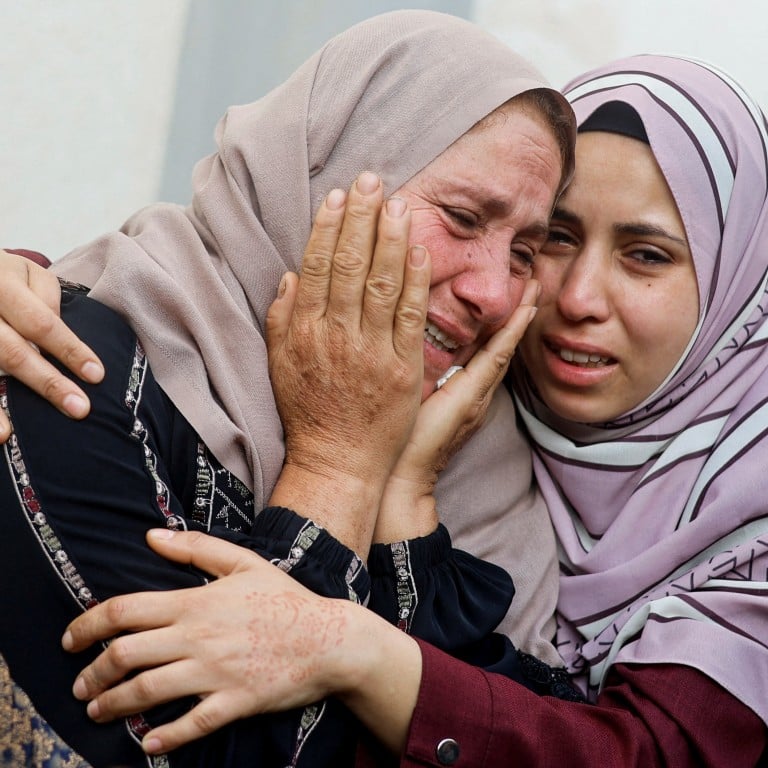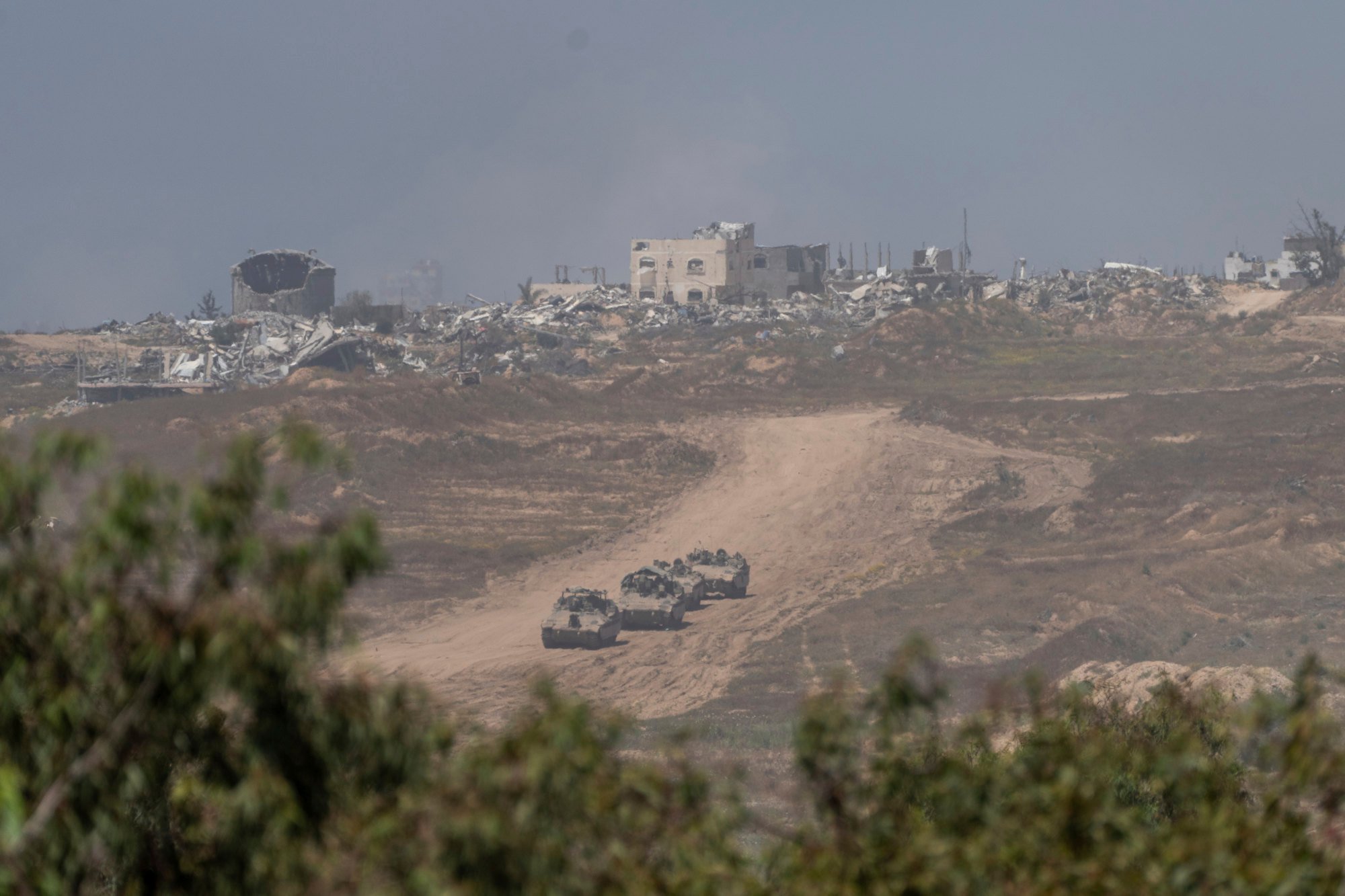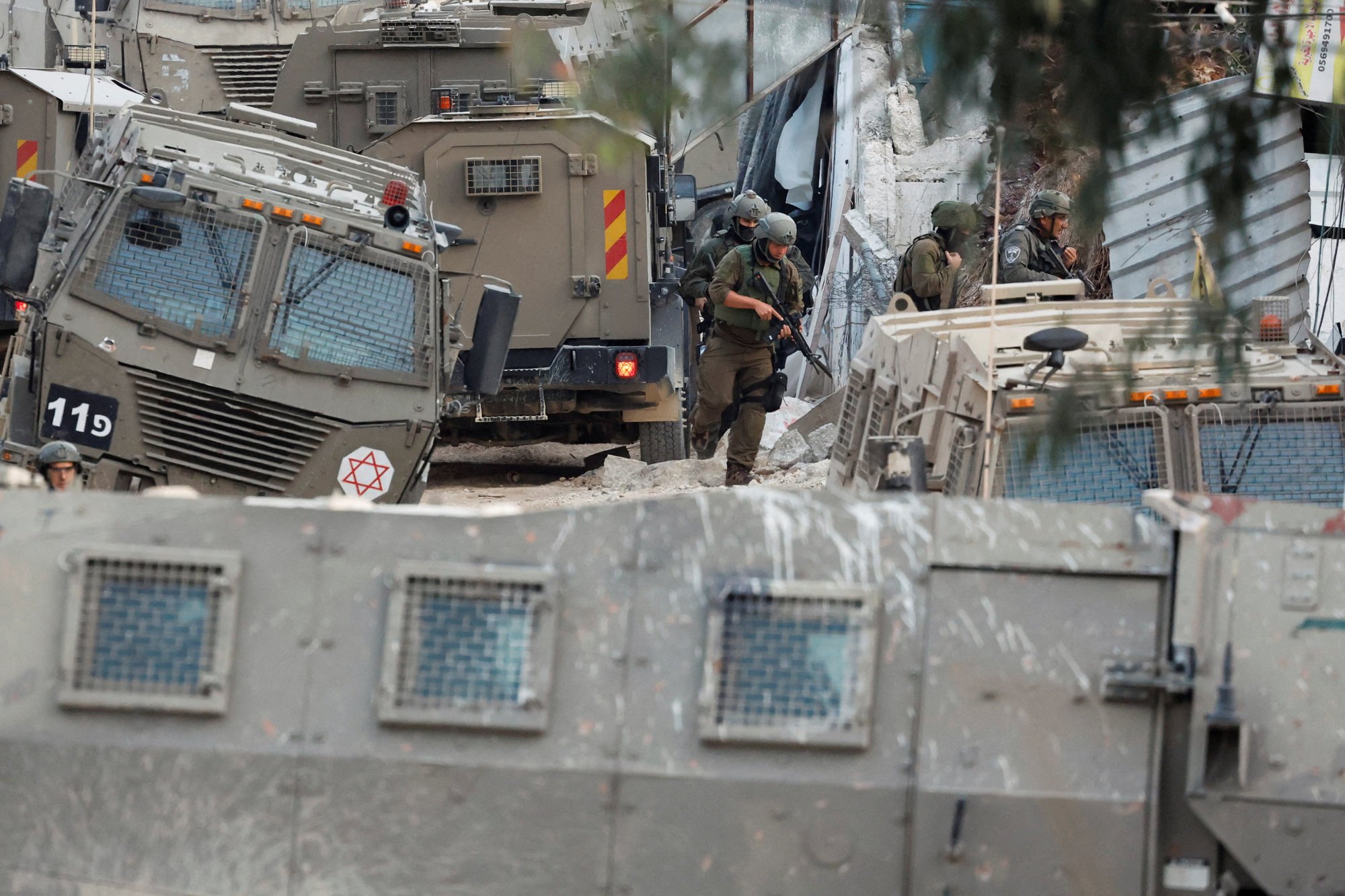
Israel’s chief of staff approves continuation of the Gaza war
- Israeli Prime Minister Benjamin Netanyahu says Israel to inflict more ‘painful blows’ on Hamas soon
- On Sunday, there was a general strike in the West Bank, and fighting broke out with Lebanon
As the Gaza war drags into its seventh month, conflict on Sunday was focused on Lebanon and the West Bank, but Israeli officials said further fighting in Gaza has been authorised and Israel’s leader promised “further painful blows”.
Israeli Chief of Staff Herzi Halevi has “authorised the further steps,” army spokesman Daniel Hagari said on Sunday.
The Israeli Kan channel reported that part of the plans included a military operation in the southern Gaza Strip city of Rafah on the border with Egypt. An evacuation of the civilian population is apparently to be expected shortly.
Israel’s allies have urgently warned against an offensive in Rafah because hundreds of thousands of Palestinian internally displaced people are crowded there.

However, Israel considers an operation in Rafah to be necessary in order to destroy the remaining Palestinian militant Hamas battalions, which attacked Israel on October 7. Otherwise, a reinvigoration of Hamas is to be expected.
Earlier in the day, Israeli Prime Minister Benjamin Netanyahu, in a video address ahead of the Jewish Passover holiday, said Israel will soon deliver more painful attacks to Hamas in Gaza.
China seeks greater global diplomatic role but avoids Middle East, analysts say
Netanyahu announced “further painful blows” against Hamas, saying “this will happen shortly”.
The Passover holiday begins on Monday evening.
In negotiations for a ceasefire in return for the release of further hostages and Palestinian prisoners, Hamas has recently hardened its position, Netanyahu explained.
“Instead of deviating from its radical positions, Hamas is now building on the division among us, emboldened by the pressure exerted on the Israeli government,” said Netanyahu. Hamas has so far rejected all mediation proposals, he said.
As a condition for the release of further hostages, Hamas is demanding a permanent ceasefire in the Gaza Strip, a comprehensive withdrawal of Israeli troops, the return of internally displaced people to their homes, a lifting of the blockade and the reconstruction of the Gaza Strip.
The Israeli army spokesman addressed the hostages saying: “We will continue to fight until you come home”. He noted that hostage relatives are in an unbearable situation and everything would be done to free their loved ones.

Until a few weeks ago, Israel had assumed that just under 100 of the 130 remaining hostages were still alive. However, it is now feared that significantly more of them may already be dead.
According to the Hamas-controlled health authority, more than 34,000 people have been killed and almost 77,000 others injured in the Gaza Strip since the start of the war six and a half months ago.
The figures, which do not distinguish between combatants and civilians, cannot be independently verified.
Israel’s Netanyahu says will fight any sanctions on army battalions
Sunday’s activity on the ground focused on the West Bank, where several Palestinians were killed in clashes with the Israeli army and Palestinians launched a general strike.
A Palestinian woman attempted to attack soldiers with a knife at an army roadblock in the West Bank, according to Israeli military sources. The soldiers shot and “neutralised” her, the military said.
The Palestinian Ministry of Health in Ramallah later reported that it had been informed by the Israeli side of the death of a 43-year-old woman in the incident in the north-east of the West Bank.

In the northern West Bank city of Hebron, meanwhile, two Palestinians were shot dead by Israeli soldiers on Sunday morning.
The Palestinian Ministry of Health reported that it had been informed of the men’s deaths by the Israeli authorities.
According to the army, they had previously attacked Israeli soldiers at a checkpoint.
Also in the West Bank, Palestinians launched a general strike on Sunday to protest Israel’s killing of Palestinians in a refugee camp in Tulkarm and in the Gaza Strip. The Fatah movement, among other groups, had called for the strike.
The situation in the West Bank has worsened significantly since the start of the war.
According to the Hamas-run Ministry of Health, 463 Palestinians have been killed in the West Bank since the Gaza war began, most in Israeli military operations. A total of 19 Israelis were killed in attacks in the West Bank or Jerusalem.
And on Israel’s northern border, fighting broke out again with Lebanon on Sunday. The Israeli army announced that two shells had been fired in the direction of the village of Rosh Hanikra in northern Israel on the Mediterranean.
The Israeli army attacked the locations from which the shots were fired. Israeli fighter jets also attacked terror infrastructure northeast of Nabatieh, it said. Previously, fighter jets had also fired on targets belonging to the Iran-backed Lebanese Shiite militia Hezbollah.
Both Hezbollah and the military arm of Hamas claimed responsibility for attacks on Israel on Sunday.
Israel’s government has evacuated 60,000 residents from the north since the beginning of the Gaza war and the border fighting. In southern Lebanon, 90,000 people have left the combat zone.

